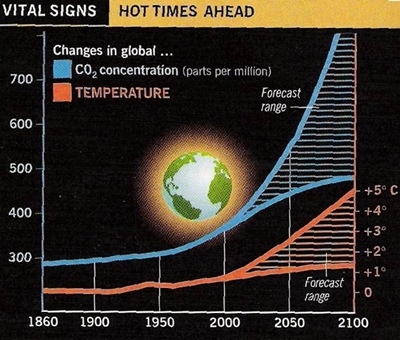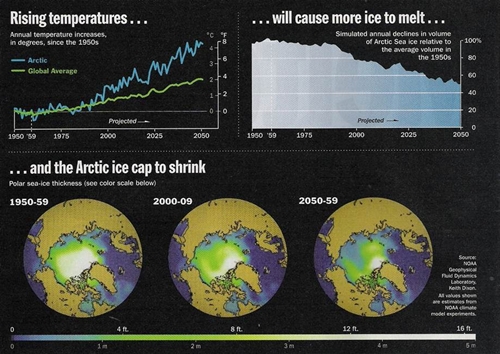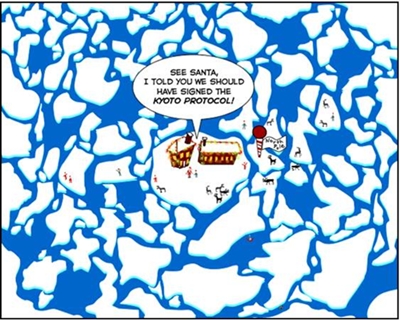|
Introduction: Nowadays, our planet has some serious problems and the one that we should be more worried is the global warming, because it has many consequences. If man doesn’t take some measures our children will suffer the consequences of all of these problems. Global Warming What does it mean? Global warming is the gradual increase in global temperatures caused by the emission of gases that trap the sun’s heat in the Earth’s atmosphere, which in turn causes changes in climate. What does cause it? Scientists have determined that a number of human activities are contributing to global warming by adding excessive amounts of greenhouse gases to the atmosphere. Human use of fossil fuels is the main source of excess greenhouse gases into the atmosphere. This is done by driving cars, using electricity from coal-fired power plants, or heating our homes with oil or natural gas. Deforestation is another significant source of greenhouse gases, because fewer trees mean less carbon dioxide conversion to oxygen. During the 150 years of the industrial age the level of atmospheric methane has risen too by 151%, mostly from agricultural activities such as raising cattle and growing rice.
Why is it dangerous? Global warming is dangerous because the warmer temperatures will provoke: . The melting of glaciers and ice caps that will rise the sea-level and this means that a lot of towns and cities will be flooded; . The extinction of many plants and animals that cannot adapt to new condition; . More powerful and dangerous hurricanes, because warmer water pumps more energy into tropical storms; . More frequent and more intensive heat waves could result in more heat-related deaths; . Virulence of tropical diseases; . More intense rainstorms and the probability of drought and wildfires.
What is being done? To stabilize greenhouse gas concentrations in the atmosphere at a level that would prevent dangerous were signed some protocols. One of them is the Kyoto Protocol to the United Nations Framework Convention on Climate Change. Countries (more than 160) that ratify this protocol commit to reduce their emissions of carbon dioxide and five other greenhouse gases, or engage in emissions trading, if they maintain or increase emission of these gases.
What should/could be done? To reduce the global warming you should: . Run your dishwasher only with a full load. Use the energy-saving setting to dry the dishes. Don’t use heat when drying. . Wash your clothes in warm or cold water, not hot. . Turn down your water heater thermostat 120 degrees is usually hot enough. . Don’t overheat or overcool rooms. Adjust your thermostat (Lowe in winter, higher in summer). . Clean or replace air filters as recommended. Cleaning a dirty air conditioner filter can save 15% of the energy used. . Buy energy-efficient compact fluorescent bulbs for your most-used lights. . Install low-flow shower heads to use less hot water. . Caulk and weather-strip around doors and window to plug air leaks . Whenever possible, walk bike, carpool or use mass transit. . When you buy a car, choose one that gets good gas mileage. . Reduce waste: Buy minimally packaged goods; choose reusable products over disposable ones; recycle. . Use your most fuel efficient vehicle for most trips and the larger, less fuel efficient one only when needed. . Insulate your walls and ceilings; this can save about 25% of home heating bills. . If you need to replace your windows, install the best energy-saving models. . Plant trees next to your house and install a light-colored and reflective roof. . This cuts down on cooling costs in warm weather. . As you replace home appliances, select the most energy-efficient models. . Recycle your potentially recyclable material (paper, plastic, metal and glass). Conclusion After this work we can say that our planet is “sick”, but if we take all of the measures that we pointed and educate children that they could learn not to do our mistakes, our planet will become a healthier planet . Match the expressions on the left with the expressions on the right.
Outros Trabalhos Relacionados
|
|


